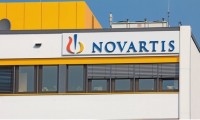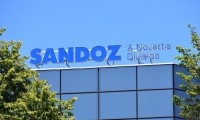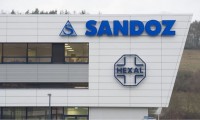-
Novartis Shareholders Approve Sandoz Spin-Off as Product Plans Increase
- Source: drugdu
- 126
- September 19, 2023
-
AbbVie’s Skyrizi Outperforms J&J’s Stelara in Late-Stage Crohn’s Disease Trial
- Source: drugdu
- 108
- September 15, 2023
-
Sandoz partners with Samsung Bioepis to license Stelara biosimilar
- Source: drugdu
- 102
- September 13, 2023
-
analysts
- Source: drugdu
- 116
- September 11, 2023
-
Astellas withdraws IRA lawsuit after avoiding CMS’ price negotiations list
- Source: drugdu
- 188
- September 8, 2023
-
US announces first ten drugs up for Medicare price negotiation
- Source: drugdu
- 102
- August 31, 2023
-
CMS
- Source: drugdu
- 92
- August 31, 2023
-
AstraZeneca Latest to Sue Biden Administration Over IRA’s Drug Price Negotiations
- Source: drugdu
- 106
- August 30, 2023
-
AbbVie achieves win for migraine prevention drug Aquipta in Europe
- Source: drugdu
- 120
- August 22, 2023
-
Sandoz says its biosimilar matches Eylea in another threat to Regeneron’s blockbuster
- Source: drugdu
- 145
- August 17, 2023
your submission has already been received.
OK
Subscribe
Please enter a valid Email address!
Submit
The most relevant industry news & insight will be sent to you every two weeks.













